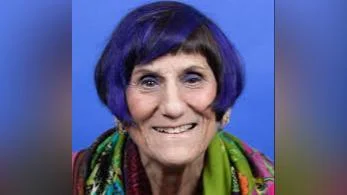Peter Salovey President | Yale University
Peter Salovey President | Yale University
When Snigdha Jain, MD, MHS, became an ICU physician, she found that two-thirds of the individuals she cared for in the ICU were older adults. She also discovered that illness did not end with survival and discharge from the hospital for these patients. This realization prompted her to better understand how the lives of older adults change after a critical illness.
Now committed to a career in aging research, Jain, an assistant professor of medicine in the Section of Pulmonary, Critical Care, and Sleep Medicine at Yale, recently won the American Geriatrics Society Health and Aging Foundation New Investigator Award. The honor recognizes individuals conducting new and relevant studies in geriatrics.
In an interview, Jain discussed the inspiration behind her research focus on older adults, the role of social factors in quality of care, and why people of all ages should strive to be active during hospital stays.
"What inspired you to pursue research in aging?" she was asked. Jain responded: "I was interested in improving outcomes after critical illness, which matters to many older adults because they value independence and quality of life, not just survival. Older adults may be at higher risk of decline after hospitalization because of pre-existing issues such as cognitive impairment, frailty, or chronic conditions."
She added: "I didn't realize how the questions I was interested in were the mainstay of geriatric research until I was introduced to the geriatric epidemiology training program at Yale. Working with Drs. Thomas Gill and Lauren Ferrante showed me how function and cognition are measured and helped me gain the tools to ask research questions that addressed the clinical problems I was seeing."
On improving quality care for older people, Jain emphasized: "It’s important to listen to older adults, validate their concerns, and understand that they may have lingering symptoms and problems because of a critical illness. We need to provide them with all kinds of support... Understanding how effective care processes are delivered across the continuum can help us design interventions to ensure equitable access."
She continued: "If patients are hospitalized in a skilled nursing facility or admitted after staying in the ICU... we need to ensure the quality of care they receive can assist their recovery."
Jain's recent study with Dr. Gill revealed significant findings about post-hospitalization symptoms: "We discovered that such symptoms are associated with downstream disability... If you're not moving around much, there is a possibility you’ll become more disabled down the road."
She advised: "I encourage older adults and everybody who’s in the hospital to advocate for themselves about the need to be active... Studies support mobilization's value in preserving downstream function and cognition."
Her research also highlights disparities faced by vulnerable populations: "Older adults with low income or limited English proficiency or those who live in rural areas are less likely to be mobilized or offered physical therapy... We need systemic changes for equitable access."
The Section of Pulmonary, Critical Care and Sleep Medicine is one among eleven sections within Yale School of Medicine’s Department of Internal Medicine.



 Alerts Sign-up
Alerts Sign-up